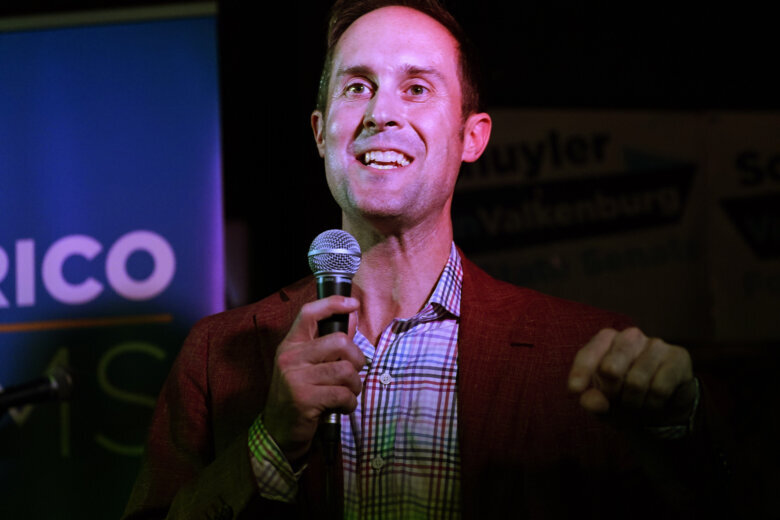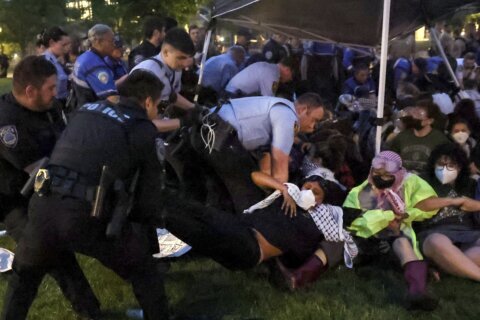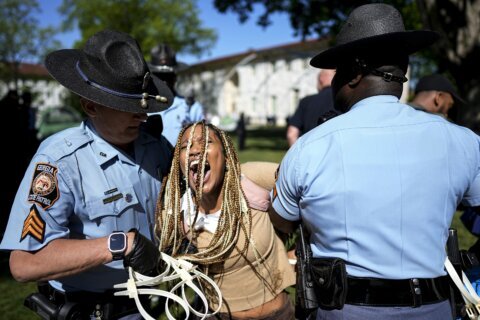
RICHMOND, Va. (AP) — Public universities would be prohibited from giving preferential treatment in admissions to applicants who are related to alumni or donors under a bill that sailed out of the Virginia Senate on Tuesday.
The measure, which passed 39-0, now goes to the House of Delegates, where an identical bill, sponsored by Democratic Del. Dan Helmer, is pending. That bill has also seen strong support so far; it advanced from a subcommittee on a bipartisan 10-0 vote this month.
“It’s about fairness. It’s about higher ed being available to everybody,” Democratic Sen. Schuyler VanValkenburg, the Senate bill’s sponsor, said in an interview ahead of the vote.
VanValkenburg, a public school teacher, said the U.S. Supreme Court’s decision last summer striking down affirmative action in college admissions prompted him to sponsor the bill this year. The court’s action heightened the national discourse around college admissions and applications, and VanValkenburg said he was surprised to learn of the extent to which some colleges leaned on the practice.
An Associated Press survey of the nation’s most selective colleges in 2022 found that legacy students in the freshman class ranged from 4% to 23%, though many schools declined to provide basic data in response to AP’s request. The AP found that at four schools — Notre Dame, USC, Cornell and Dartmouth — legacy students outnumbered Black students.
Both the Virginia House and Senate measures have advanced through committee hearings with minimal discussion and no public opposition. Neither VanValkenburg nor Helmer were aware of any college or other interest group opposing the legislation, they said Tuesday.
“I think this does have broad bipartisan support because I think everybody recognizes it’s the right thing to do,” VanValkenburg said.
The change would remove a barrier to college access and help expand pathways to the middle class, Helmer said.
Christian Martinez, a spokesperson for Republican Gov. Glenn Youngkin, said the governor would review any legislation that reaches his desk “but believes admission to Virginia’s universities and colleges should be based on merit.”
The issue got some high-profile GOP support over the summer when Republican Virginia Attorney General Jason Miyares voiced support for a legacy admissions ban, following the Supreme Court’s decision.
“Colleges and universities use legacy applicants to keep donations flowing and maintain their aura of exclusivity. It often benefits the upper echelon and hurts middle- and lower-class America,” Miyares wrote in an op-ed in the Richmond Times-Dispatch.
In 2021, Colorado became the first state to ban legacy admissions, according to news reports.
According to a research report from the National Conference of State Legislatures provided by Helmer’s office, Colorado remains the only state to have passed legislation banning legacy admissions at postsecondary institutions, though at least five other states have considered related legislation.
Democratic U.S. Sen. Tim Kaine, of Virginia, has also introduced similar legislation in Congress, along with Republican Sen. Todd Young, of Indiana.
Copyright © 2024 The Associated Press. All rights reserved. This material may not be published, broadcast, written or redistributed.








